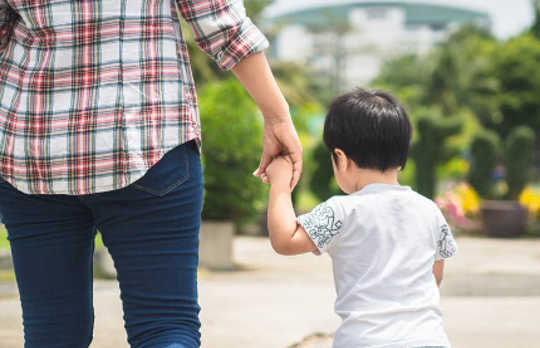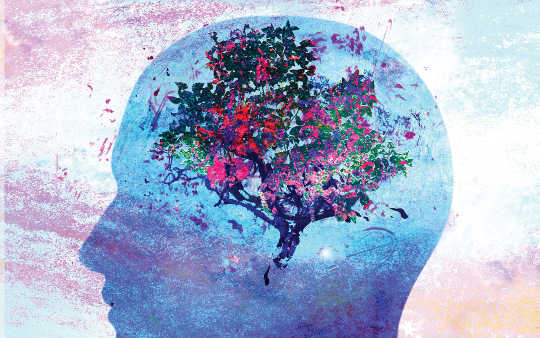- By Kim Halford

Most children adjust well to parental separation and divorce, at least in the long term. A minority of children of separated parents have long-term problems, which can affect them through their childhood and into adult life. But it’s conflict between separated parents, and not the separation itself, which accounts for many of the problems children of separated parents experience.
 Supervised, awake tummy time is recommended to facilitate a baby’s development and minimise flat head syndrome. But some babies don’t like tummy time, and will kick up an almighty fuss to let you know. Luckily, tummy time is not all you can do to get your baby moving.
Supervised, awake tummy time is recommended to facilitate a baby’s development and minimise flat head syndrome. But some babies don’t like tummy time, and will kick up an almighty fuss to let you know. Luckily, tummy time is not all you can do to get your baby moving.

The real danger of separating children from parents is not the psychological stress – it’s the biological time bomb.. The screaming and crying, the anguish and desolation is gut-wrenching. But the fallout pales in comparison to the less visible long-term effects that are more sinister and dangerous.
- By Stuart Wilde

We can only trace romantic love back to about a thousand years ago. Prior to that, there wasn't any romantic love. It's an idea that has been invented, like a philosophy or a religion. It has been made very special.

The image of the partner who is most attractive to you is buried deep within your unconscious mind. You began sketching this picture soon after your birth and before you were a teenager the composite was nearly complete. Your Imago has a dominant influence over the type of partner you seek, the way you relate to him, and how happy you will be together. The relationship script you wrote as a child is based on both the Imago you created and the childhood wounds you suffered.
- By James Kuzner

For a lecture course I teach at Brown University called “Love Stories,” we begin at the beginning, with love at first sight. To its detractors, love at first sight must be an illusion – the wrong term for what is simply infatuation, or a way to sugarcoat lust. Buy into it, they say, and you’re a fool.

It’s been said that whatever brings us to face the essential truth of our lives may be called “grace.” Frequently, grace assumes a form that feels more like a curse than a blessing. It can be a life-threatening illness, the loss of a family member, being fired from a job, the kids leaving home (or coming back), divorce, a serious accident, or any number of possible crises that can be encountered in one’s life.

A successful relationship has two very important components: learning to love yourself first, and then learning to love another person. Too many people ignore the first part, then wonder why it’s so hard to love another. It’s like expecting to water a plant with an empty water pitcher. Or trying to put on your child’s oxygen mask when the airplane cabin pressure drops, but passing out from lack of oxygen before you can get it on.

Acceptance is the hallmark of many Eastern teachings. The opposite of acceptance and validation is judgment and denial, which make us tense up, lose our center, criticize ourselves and others, and hold impossible standards for everyone. When we are being judgmental, we invalidate ourselves and others.

We know from new research that children whose mothers are depressed may respond differently to stress, have altered immunity and be at greater risk of psychological disorders. This work adds to the body of research showing children can be affected in negative and long-term ways by their mothers’ mental ill-health.

When talking about separation and divorce, media and personal stories often focus on relationships characterised by ongoing conflict or violence. In contrast, Australian research suggests low conflict or cooperative post-separation relationships are common. These are negotiated in contexts that require what British sociologist Carol Smart described as an “indelible” joint-parenting contract.
- By Angie Hunt

Children of divorce are less likely to earn a four-year or graduate degree, according to a new study. The study is one of the first to look specifically at divorce and graduate education. Susan Stewart, professor of sociology at Iowa State University, says it is important to understand this relationship as more jobs require a graduate or professional degree.

A critical step in the embrace of silence and solitude is setting aside the notion that we have to be "doing something" throughout our waking hours. For most of us, this goes against what we have been taught since childhood...

Many of our "life lessons" come to us through what we might usually call a "negative" experience, or possibly a "negative" person in our life. However, the addition of the term negative to any person or situation is simply a perception, or a judgment, on our part.

Worldwide, people are not eating enough fruit and vegetables. In Australia, less than 4% of us meet the Australian Dietary Guideline recommendations for vegetables by age group. Worryingly, children and teenagers are even less likely than adults to be eating enough vegetables.
Less than 1% of kids aged two to three are eating the recommended 2.5 serves of vegetables and legumes a day. Between ages four to eight, 0% of kids are meeting their minimum 4.5 serves of vegetables per day. Most children up to 13 are eating two or fewer serves per day when the aim is closer to five serves.

Each of us has the opportunity to accept and welcome the gift of living fully in the present. When we awaken to the eternal here and now, we feel alive, mobilized, our senses quickened. Each moment fully experienced becomes an integral part of the sculpting of our future. As we live today, we create our tomorrows.

While some kids may be lucky enough to skate through their parents’ separation relatively unscathed, the majority are going to suffer at least some short term, if not longer term distress. As an adult, you’ve likely forgotten just how central your family was to your sense of stability and even identity. Children have yet to develop autonomy, independence or a secure sense of self; instead, their entire frame of reference is strongly centred around their family. When that framework is broken, their world can feel as though it has fallen apart.
- By Sheena Rice

A pattern of breaking up and getting back together can be bad for your mental health, according to a new study. While on-and-off-again couples like Sam and Diane from Cheers or Ross and Rachel from Friends may keep audiences watching, Kale Monk, assistant professor of human development and family science at the University of Missouri, suggests people in these kinds of relationships should make informed decisions about stabilizing or safely terminating their relationships.

We spend much of our time talking about trivial matters and practical ones -- the weather, plans for the day, routine office events, frivolous gossip, the next technological miracle, etc. So little of our conversation addresses our passions, loves, emotions, dreams, or our creative insights...
 Exposure to an acute stress in utero can have long-term consequences extending into childhood—but only among children in poor households, according to a new study. The study, which took place in Chile, did not find the same effect among children in upper- or middle-class families.
Exposure to an acute stress in utero can have long-term consequences extending into childhood—but only among children in poor households, according to a new study. The study, which took place in Chile, did not find the same effect among children in upper- or middle-class families.

Dress code policies have always been prevalent in schools. Normally, what children can and cannot wear in schools is explicitly noted in school policies or implicitly implied by broader cultural and societal norms. The issue of the vast and sometimes exhaustive list of dress code policies of what cannot be worn has not had any resolution across localities and countries.

There is magic in stories. We all remember hearing them as children, and we loved them. Imaginary adventures set in faraway places. Tales about how the dishwasher isn’t working. It doesn’t matter! Whether made up by parents or read from books, kids love to hear stories. Our recent work showed reading to children positively impacts long term academic achievement more than many other activity (including playing music with them, or doing craft).
 Imagine that someone you care about is procrastinating in advance of a vital exam. If he fails the test, he will not be able to go to university, an eventuality of major consequence in his life. If positive encouragement doesn’t work, you might reverse strategy, making your friend feel so bad, so worried, so scared, that the only strategy left is that he starts studying like mad.
Imagine that someone you care about is procrastinating in advance of a vital exam. If he fails the test, he will not be able to go to university, an eventuality of major consequence in his life. If positive encouragement doesn’t work, you might reverse strategy, making your friend feel so bad, so worried, so scared, that the only strategy left is that he starts studying like mad.

















